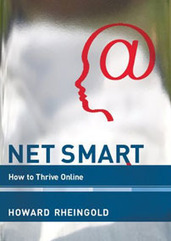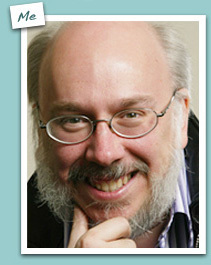The onslaught of information from the wired world can be overwhelming to anyone — even the savviest online audiences. But rather than completely shut out the digital world, the smarter solution is to learn how to manage it, says author Howard Rheingold.
In his book Net Smart: How to Thrive Online, Rheingold outlines the potential merits of the vast digital landscape, and offers ideas on how to lasso the unwieldy aspects and use it for good.
In a recent conversation on the Forum talk program, Rheingold stresses the importance of intention when it comes to managing digital noise. Knowing that every click will likely to lead to a chunk of time spent on what follows will help people decide if that’s worthwhile. Every click counts.
I think [there's] this matter of meta-cognition, of knowing where you’re putting your attention,” he told Michael Krasny on Forum. “You need to make decisions. ‘Am I going to click on that link? Am I going to maybe open a tab for it on my browser and look at it later?
Am I going to bookmark it to look at it much later or am I going to ignore it?’ You need to make those decisions consciously and I think most of us make them unconsciously… We wouldn’t have so many cute cat videos if people didn’t click on impulse.”
“You need to make decisions. ‘Am I going to click on that link? You need to make those decisions consciously.”



 Your new post is loading...
Your new post is loading...













Howard is spot on so many things. This is one of the many